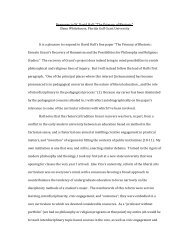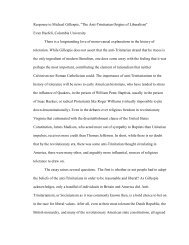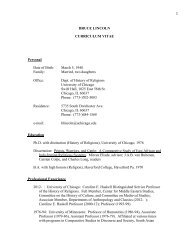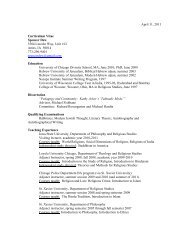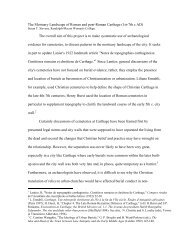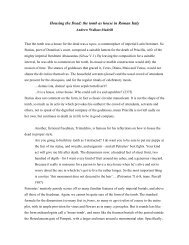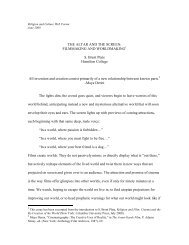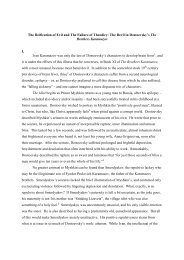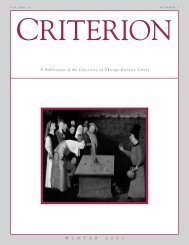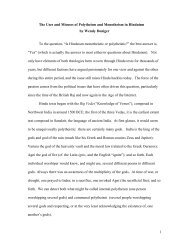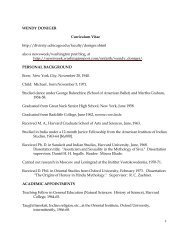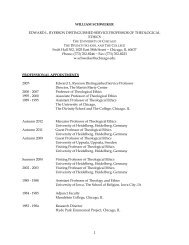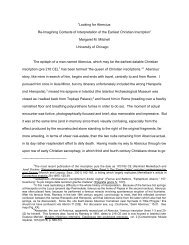Gregory Thaumaturgus - Divinity School - University of Chicago
Gregory Thaumaturgus - Divinity School - University of Chicago
Gregory Thaumaturgus - Divinity School - University of Chicago
You also want an ePaper? Increase the reach of your titles
YUMPU automatically turns print PDFs into web optimized ePapers that Google loves.
Platonic view <strong>of</strong> the soul, <strong>Gregory</strong> asserts that created human beings can learn to correctly channel their<br />
passionate nature into a powerful desire for closeness to their creator God. Unlike his predecessor Origen,<br />
<strong>Gregory</strong> does not believe that a person’s desire for God can ever be sated, since the unlimited God will<br />
eternally be able to reveal more <strong>of</strong> Himself to the believer. 29<br />
For <strong>Gregory</strong>, the portrait <strong>of</strong> Paul in Philippians<br />
3:13, the man who is “continually stretching out (ἐπεκτείνω) toward what lies ahead,” epitomizes the goal<br />
<strong>of</strong> the changeable human in relation to the unchanging God; the person who can practice this epektasis<br />
participates in “the activity that should characterize man as a creature and, consequently, involved in<br />
change.” 30<br />
<strong>Gregory</strong>’s literary depictions <strong>of</strong> human life, his biographical narratives, thus contain discussions<br />
<strong>of</strong> development and formation <strong>of</strong> character over time and in response to new situations.<br />
The VM is actually written for the purpose <strong>of</strong> illustrating such advancement. A younger man,<br />
presumably training for the priesthood, requests advice about how to live a virtuous life, and <strong>Gregory</strong> says<br />
he will describe Moses, who learned and possessed perfect virtue. Near the beginning <strong>of</strong> the VM, he makes<br />
a broad statement about continual aspiration to the good and indicates for his young reader that the very<br />
desire to advance toward greater virtue is already “the perfection <strong>of</strong> human nature.” 31<br />
It is the desire <strong>of</strong> any<br />
rightly oriented human nature to seek advancement in virtue, and if <strong>Gregory</strong> can provide texts that describe<br />
virtuous individuals and present occasions for readers to imitate these subjects, his bioi are meeting an<br />
essential human need.<br />
Second, and not surprisingly, <strong>Gregory</strong> sees Scripture as the most reliable teacher for those seeking<br />
an education in virtue and epektasis. When <strong>Gregory</strong> begins his presentation <strong>of</strong> Moses’ life in VM I.10-15, he<br />
presents the Biblical exemplar as a model <strong>of</strong> virtue for all humans, but then makes a distinction as regards<br />
gender. In this way <strong>Gregory</strong> reinforces the significance <strong>of</strong> a physical category (what he calls gender but what<br />
most modern thinkers would refer to as biological sex) for the embodied manifestation <strong>of</strong> virtue in his own<br />
29 On <strong>Gregory</strong>’s position vis-à-vis Plato and Origen, see Heine, 36.<br />
30 Heine, 93.<br />
31 VM I.10




